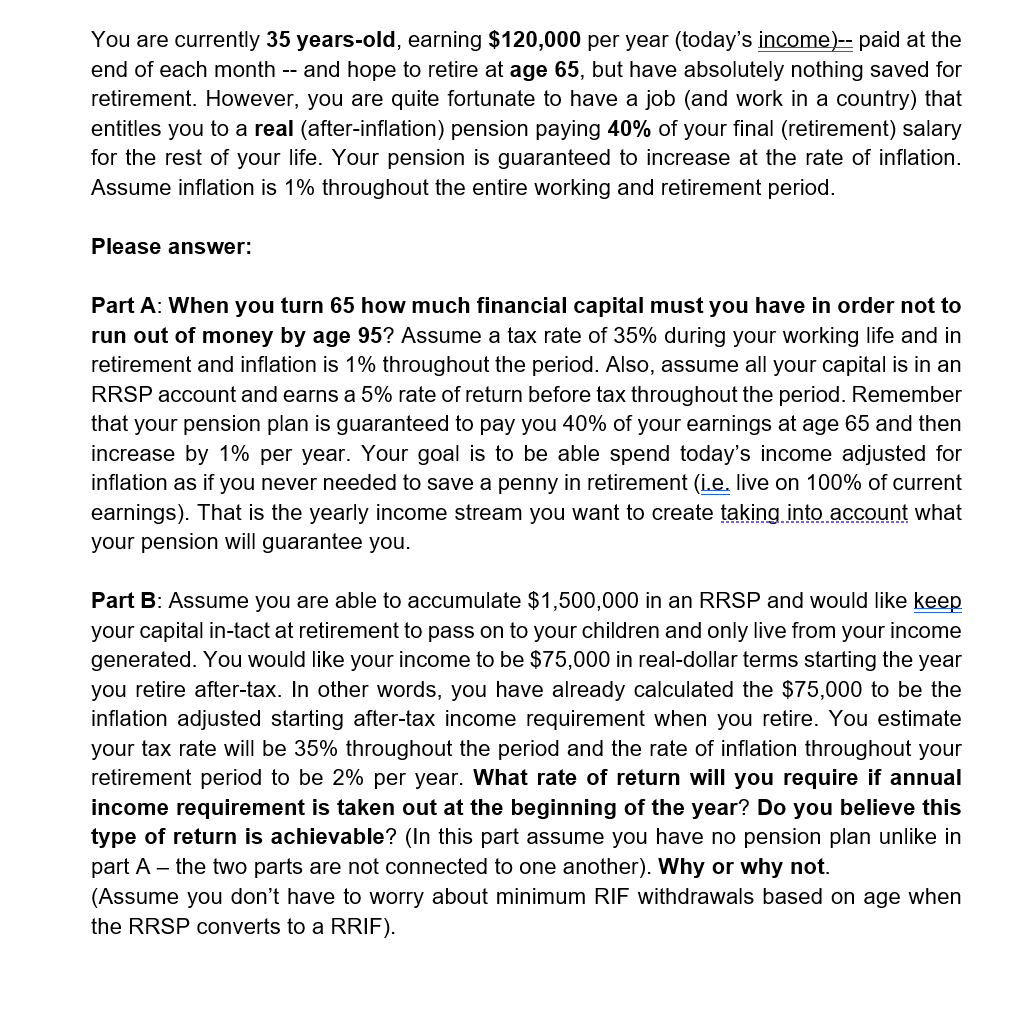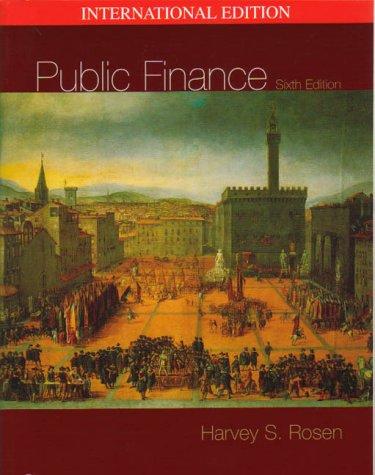Most of this question is already answered in another post. This one has a different follow up question for Part B.

You are currently 35 years-old, earning $120,000 per year (today's income)-- paid at the end of each month -- and hope to retire at age 65 , but have absolutely nothing saved for retirement. However, you are quite fortunate to have a job (and work in a country) that entitles you to a real (after-inflation) pension paying 40% of your final (retirement) salary for the rest of your life. Your pension is guaranteed to increase at the rate of inflation. Assume inflation is 1% throughout the entire working and retirement period. Please answer: Part A: When you turn 65 how much financial capital must you have in order not to run out of money by age 95? Assume a tax rate of 35% during your working life and in retirement and inflation is 1% throughout the period. Also, assume all your capital is in an RRSP account and earns a 5% rate of return before tax throughout the period. Remember that your pension plan is guaranteed to pay you 40% of your earnings at age 65 and then increase by 1% per year. Your goal is to be able spend today's income adjusted for inflation as if you never needed to save a penny in retirement (i.e. live on 100% of current earnings). That is the yearly income stream you want to create taking into account what your pension will guarantee you. Part B: Assume you are able to accumulate $1,500,000 in an RRSP and would like keep your capital in-tact at retirement to pass on to your children and only live from your income generated. You would like your income to be $75,000 in real-dollar terms starting the year you retire after-tax. In other words, you have already calculated the $75,000 to be the inflation adjusted starting after-tax income requirement when you retire. You estimate your tax rate will be 35% throughout the period and the rate of inflation throughout your retirement period to be 2% per year. What rate of return will you require if annual income requirement is taken out at the beginning of the year? Do you believe this type of return is achievable? (In this part assume you have no pension plan unlike in part A - the two parts are not connected to one another). Why or why not. (Assume you don't have to worry about minimum RIF withdrawals based on age when the RRSP converts to a RRIF)







